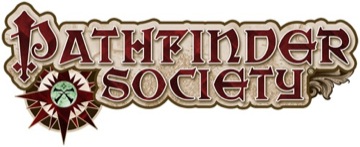 Jesse Heinig
Jesse Heinig
|
Jesse, that is very well-written and interesting post.
However, I do not think that you will ever see what you are asking for in Pathfinder Society.
Some thoughts:
At this point, any changes to the structure of scenarios has to take all of the legacy scenarios into account. The org team has indicated that their priority is on making sure scenarios come out as scheduled, and I doubt that going back to tie Faction Missions into the main mission for 3 seasons worth of scenarios would ever be feasible.
Tracking alignment would be something that I would love to see, but I don't know how it would ever work. How many threads af alignment wars are on these boards? I know there is another thread on the PFS boards where yesterday someone said that 'killing someone who surrendered after they attacked you was certainly not an evil act'; I think that it often may not be, but would not assume that it certainly wasn't. Other GMs who I respect would have a vastly different opinion. How can alignment be quantified for an Org Play system, when all GMs have different interpretations of alignment?
I know that this has been beaten to death, but the Pathfinder Society is not a Good organization. Certain characters (notably paladins and LG clerics) are going to have a difficult time with many of the main missions of the Society, let alone the faction missions. And while paladin PC's should always be considered, they cannot be the primary factor in what a designer comes up with as a mission.
It will be interesting to see what Mark & Hyrum put forward in the coming blogs as far as changes for the new Season, and if they address your concerns.
We have two choices:
1. We can build upon our experience and our past mistakes to make better Pathfinder Society stories.2. We can be held shackled by "backward compatibility" and recognize that there are flaws but refuse to do anything about them going forward.
(I'm pretty sure I'm not engaging the fallacy of the excluded middle, too. Those really are the two sides of the coin.)
I am not bothered by the fact that the Pathfinder Society as a whole is not a Good-aligned organization. I'm fine with characters having to make ethical and moral choices about the challenges that they face.
The kicker is, if you want to put people into the position of making a meaningful choice, you do a lot better by making them choose between two (or more) good options, or two (or more) bad options, rather than a good option and a bad option.
At present, the choice is very simple, and it basically breaks down to play style. If you are concerned more with PA, then you choose to pursue faction goals at the expense of alignment. If you are concerned with characterization, then you refuse faction goals to uphold alignment. Choosing the latter course is personally satisfying, but it is bad for team play, because your character is less capable of facing other game challenges that lie ahead, and there is no recognition that this choice may have such an impact (i.e. aside from "remaining a paladin," a character has no incentive to choose to refuse PA).
My suggestion would be, going forward, start trying to write challenges in this format, especially with the new factions coming in to play. Address the reasoning behind some of the alignment dilemmas so that there's not a lot of table argument over it; at some point, someone has to be the buck-stopper and say "Look, if your character murdered this innocent person in cold blood, then that's an evil act, and we're not really going to listen to your justifications about the long-term consequences and the 'greater good' and whatnot. You have innocent blood on your hands. Good job, Lady MacBeth."
Let the earlier scenarios remain what they are. The Season 0 scenarios don't give as many prestige points, but they are still legal for play and valid. Same deal here -- you can write scenarios with more difficult decisions built into the faction missions without invalidating your earlier scenarios.
Now this, of course, is work. And that is why professional writers are paid. :)

|
I would like to see the percentage of 'good-aligned' faction missions that a Paladin would refuse. As in, how many assassination and poisoning missions are we talking about here? If it's only 5-10%, well that's okay in terms of game PA, because it has been stated before that you are only expected to get 50% of your PA. If you are refusing 25% of your faction missions as a paladin, but getting the rest, you are still doing above average in terms of the expected PA by the Society.
 Jesse Heinig
Jesse Heinig
|
I would like to see the percentage of 'good-aligned' faction missions that a Paladin would refuse. As in, how many assassination and poisoning missions are we talking about here? If it's only 5-10%, well that's okay in terms of game PA, because it has been stated before that you are only expected to get 50% of your PA. If you are refusing 25% of your faction missions as a paladin, but getting the rest, you are still doing above average in terms of the expected PA by the Society.
You're shrinking the scope, which changes the nature of the discussion at hand. Paladins are just outliers. The real problem is that right now nobody should refuse a faction mission for alignment reasons, because then you are losing PA and gaining nothing. Paladins simply happen to be one of the few class cases in which there are direct and clear punishments for making such a choice (assuming that the DM actually enforces them).
If you're playing a lawful good fighter, or rogue, or wizard, or what-have-you, you should still be totally having a moral quandry over a faction mission to knowingly perform an evil deed. Paladins simply have the added, uh, "incentive" that performing this evil deed has actual consequences for them.
Faction missions that explicitly invoke alignment should create dilemmas for people based on that alignment choice. The alternative is to not create faction missions that invoke alignment dilemmas.

|
Stuff
Okay then, let me rephrase that. What percentage of faction missions are refused based on alignment, or even, SHOULD be refused based on alignment. It's still going to be less than 50%, which means that the assumed faction success rate is still occurring, if not being higher than what is expected.
The majority (and by that I mean >75%) of the faction missions I have seen are alignment-independent.
 Jesse Heinig
Jesse Heinig
|
Jesse Heinig wrote:StuffOkay then, let me rephrase that. What percentage of faction missions are refused based on alignment, or even, SHOULD be refused based on alignment. It's still going to be less than 50%, which means that the assumed faction success rate is still occurring, if not being higher than what is expected.
The majority (and by that I mean >75%) of the faction missions I have seen are alignment-independent.
Ooo, math!
Ok, so what you're saying is, paladins should expect to fail 25% of their faction missions automatically due to alignment dependency.
But ALL characters are assumed to make an average of 50% of their PA, according to your previous assertion.
So paladins will lose 25% of their opportunities, right out the gate. Not even a question. That leaves 75% of the remaining as ones that they might POSSIBLY do.
If characters are expected to complete 50% of the PA missions that are even available to them -- and anything that is alignment-dependent is not available to paladins, if the GMs are strict in upholding the paladin class's limitations -- then the paladin gets 50% of 75% of the opportunities that everyone else gets. That means paladins can expect to earn about 37.5% of the PA available overall, or 12.5% less than everyone else, because a chunk of the faction missions are simply, already, flatly unusable to them. By the numbers that you stated.
The solution, as I said before, is to provide opportunities in which the players' choice to pursue or not pursue a faction mission has effects on the overall mission, either way. Then there is an actual, legitimate choice, and a real dilemma -- "should I do this and get PA, or should I not do it and get something else?" Right now the paladin (and arguably a cleric or druid) is pretty much the only person who gets "something else," and that "something else" is just "you get to keep your class abilities."
So this would mean your faction missions become things like:
- Assassinate (x individual) who is an operative of an enemy government. Doing so will net you your PA bonus.
- If you do not assassinate him, he may provide you with information that allows you bypass a section of an encounter so that it is easier to complete in some fashion (because you skip a guard, or you get a bonus in a social encounter, or you get information that you needed without having to confront someone over it). In this case, though, you must let him go to make the arrangements, and you will not have an opportunity to assassinate him later.
- If you do not take advantage of his bonus information and you do not assassinate him, you might coerce him into leaving or cause him to flee from you. In such a case you would not gain PA, but you gain special access to two magic items that he leaves behind in a safehouse (which you would not have encountered otherwise).
- Or maybe you convince him to switch sides, and you then get him to aid you as a friendly NPC for the next encounter. But if you do this and you subsequently murder him, this is an evil act AND because he switched sides before you killed him you get no PA.
As I said before, this is actual work. Which is why writers are paid.
Or we could just keep having faction missions of "Go frame an innocent man for a crime. If your character is lawful good, screw off because you are not allowed to have any PA, and then your local Pathfinder players will not allow you play at tables because you are 'under-optimized.' "






